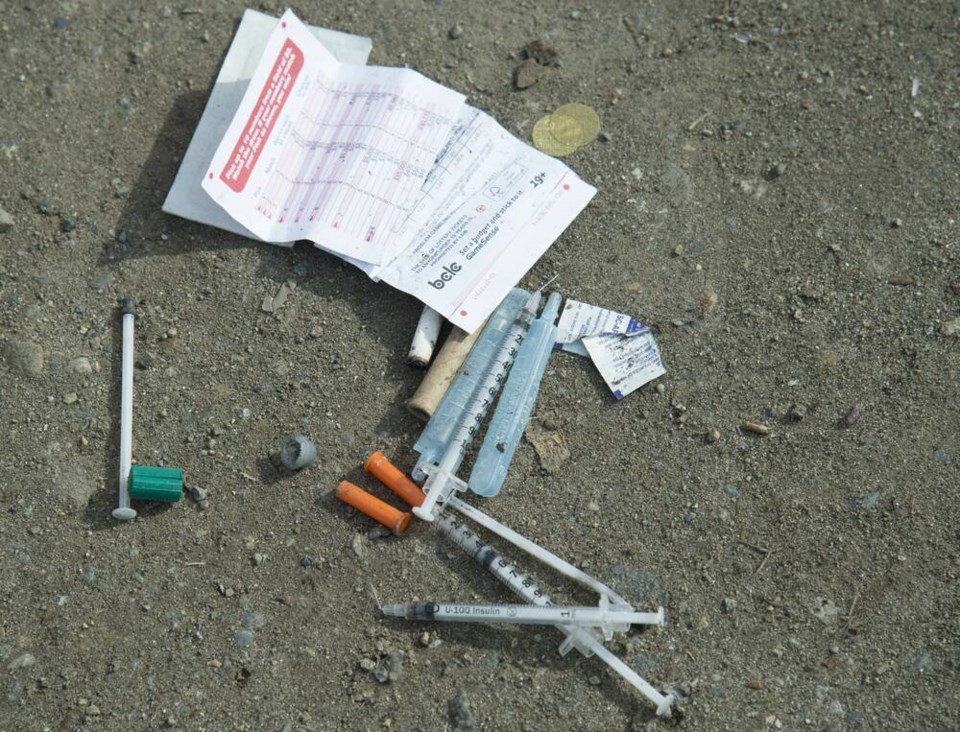Last December, in a ruling that defied common sense, B.C. Supreme Court Chief Justice Christopher Hinkson placed in abeyance the province’s new restrictions on public drug use.
That decision was upheld this month by the B.C. Appeal Court, pending a constitutional challenge at a later date.
The new restrictions came about because, when the province decriminalized possession of illegal drugs, consumption in public places was prohibited in only a handful of locations.
Municipalities were concerned that as things stood, drug use would be permitted in parks, beaches, sports fields and other locations where children might be present.
To take account of this concern, last September the province expanded the scope of prohibited locations.
That led the Harm Reduction Nurses Association to file a court challenge, alleging the new regulations threatened the safety of users.
Specifically, the association argued that prohibiting drug use in such a wide range of locations would force addicts into back alleys and other out-of-sight locations, putting their lives in danger.
The challenge was based primarily on Sections 7 and 12 of the Charter of Rights and Freedoms. Respectively, these guarantee the right to life, liberty and security of the person, and prohibit cruel and unusual punishment.
Although he issued only a temporary halt to the regulations, Hinkson went a long way to accepting this argument. Specifically, he noted “I find that there is a high degree of probability that at least some of the harm set out by the (association) will in fact occur.”
And he concluded, “I am satisfied that the suspension of the (regulations) as the (association) proposes … can be properly characterized as a substantial public benefit.”
So while the province is still free to remount a constitutional challenge, it faces what appears to be an uphill battle.
Two questions arise. First, was Hinkson right that Sections 7 and 12 of the Charter provide a basis for suspending the regulations?
We would argue that he was not. All of the rights established by the Charter are subject to “such reasonable limits … as can be demonstrably justified.”
Prohibiting drug users from shooting up in public places where children may be present is nearly the definition of a reasonable limit.
Indeed Hinkson’s own court had already recognized these limits on the rights of individuals. In a case last year, the B.C. Supreme Court ruled that employers have the right to dismiss workers who refuse mandatory vaccination.
The case arose because an employee objected to being vaccinated for fear of negative side effects. She was placed on unpaid leave.
Isn’t depriving an employee of her income a form of harm, just as prohibiting drug use in parks is a form of harm? Yes it is. But the court ruled, “Ultimately, individuals must deal with the consequences of their choices.”
The second question raised by Hinkson’s ruling is where we go from here. The province can relitigate the matter, though that means another trip to Hinkson’s court.
If the government loses there, it can once again approach the appeal court.
Whichever party loses at either of these venues would then likely take the issue up with the Supreme Court of Canada.
But this process could take years, and all the while, drug use in public places will continue.
There is a simpler solution. The province should invoke the Charter’s notwithstanding clause.
That clause enables the provinces to exempt their legislation from challenges based, among other things, on sections 7 and 12 of the Charter.
Premier David Eby has already said he finds it absurd that the province can regulate where alcohol and tobacco may be consumed, but not dangerous drugs.
We agree. So put an end to this needless litigation, and invoke the notwithstanding clause.
>>> To comment on this article, write a letter to the editor: [email protected]



